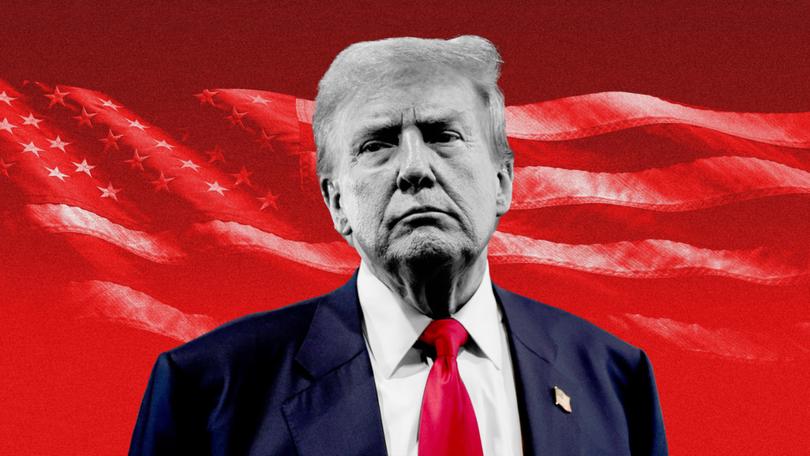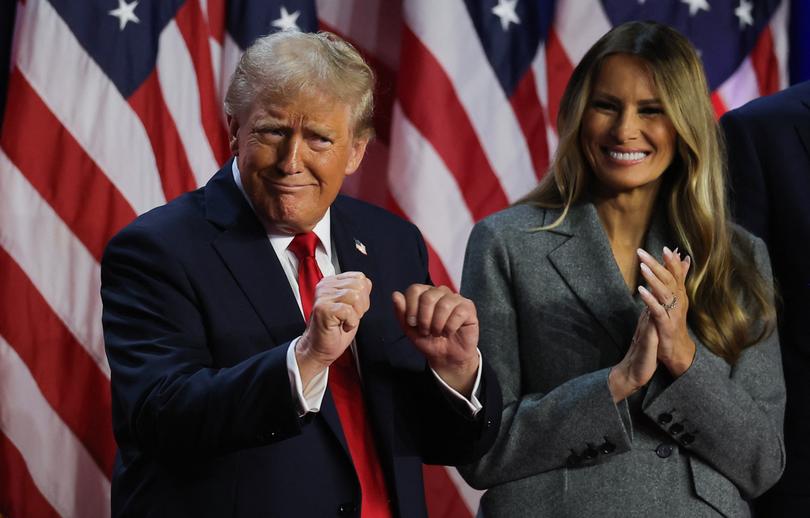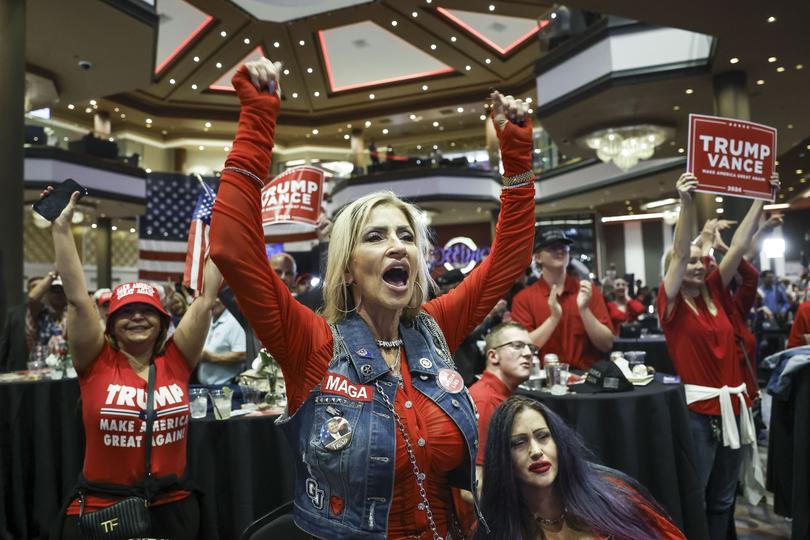AARON PATRICK: Donald Trump has created a new, more powerful Republican Party

Black men. Hispanic men. Suburban women. Iowa.
All unexpectedly shifted towards Donald Trump, allowing the candidate his opponents dubbed a “fascist” to emerge from the election with a coalition covering a cross-section of American society, with the exception of the economic elites who went en masse with his Democratic opponent, Vice President Kamala Harris.
Sign up to The Nightly's newsletters.
Get the first look at the digital newspaper, curated daily stories and breaking headlines delivered to your inbox.
By continuing you agree to our Terms and Privacy Policy.Shortly before midnight in Washington, Fox News quoted a Democratic insider saying: “I think we’re losing this. I think we’re losing this.”
By the end of the day, Trump led or had won all of the seven so-called battleground states: Arizona, Georgia, Michigan, Nevada, North Carolina, Pennsylvania and Wisconsin.
In Philadelphia, Trump’s support among black men rose from 10 per cent in 2020 to 25 per cent this election – an example of working-class voters turning away from the progressive politics advanced by a woman of Indian and Caribbean heritage.
In the Senate, the Republicans have snared at least 51 of the 100 seats, raising the prospect of a supportive legislature for a Trump administration, which has promised to begin massive deportations of illegal residents as soon as it takes power.

A Trump victory rewrites the laws of US politics. It could influence right-wing parties around the world.
Trump has demonstrated the power of populist economics from the right, including winding back free trade to protect domestic manufacturing jobs, and hostility towards immigration, which has long driven economic growth in the West, including Australia, by providing cheap labour.
The election demonstrated the power of culture over politics. Throughout the campaign, Trump emphasised his opposition to transgender rights, the diversity, equity and inclusion movement, and lax criminal sentencing.
“This is the new Republican party that Trump has fashioned,” US-British political commentator Steve Hilton said.
Voters mostly ignored Trump’s questionable character. A convicted felon, he faces further criminal charges that could theoretically result in jail time, has a long history of dubious business dealings and has openly sexually objectified women.
With two-thirds of Americans reporting they feel the country is heading in the wrong direction, Trump’s refusal to temper his language seemed to do him little harm with voters, who liked his blunt persona.
If, as expected, Trump becomes the first defeated president to return to power in 132 years, the Republican Party will continue a transformation in his image.
The Grand Old Party, as it is known, will become more economically populist and culturally conservative.

A Trump administration, especially if the party controls Congress, might not respect the separations of power between the three arms of government, an independent Federal Reserve, or the Western diplomatic and military alliance that has been the foundation of the international world order since World War II.
But Trump’s unpredictability makes it hard to know whether he will abandon important American positions, including support for Ukraine in its war with Russia, and containment of an aggressive China.
Australia benefits from free trade and US diplomatic and military engagement in the Pacific. Both may be under threat from a Trump administration, but Trump in the past has been willing to make concessions to Australia because it is a close US ally.
Liberal leader Peter Dutton will likely receive a morale boost from the election. His populist politics, including hostility towards foreign investment, align with Trump’s approach, which is celebrated within the conservative wing of the Liberal Party.
